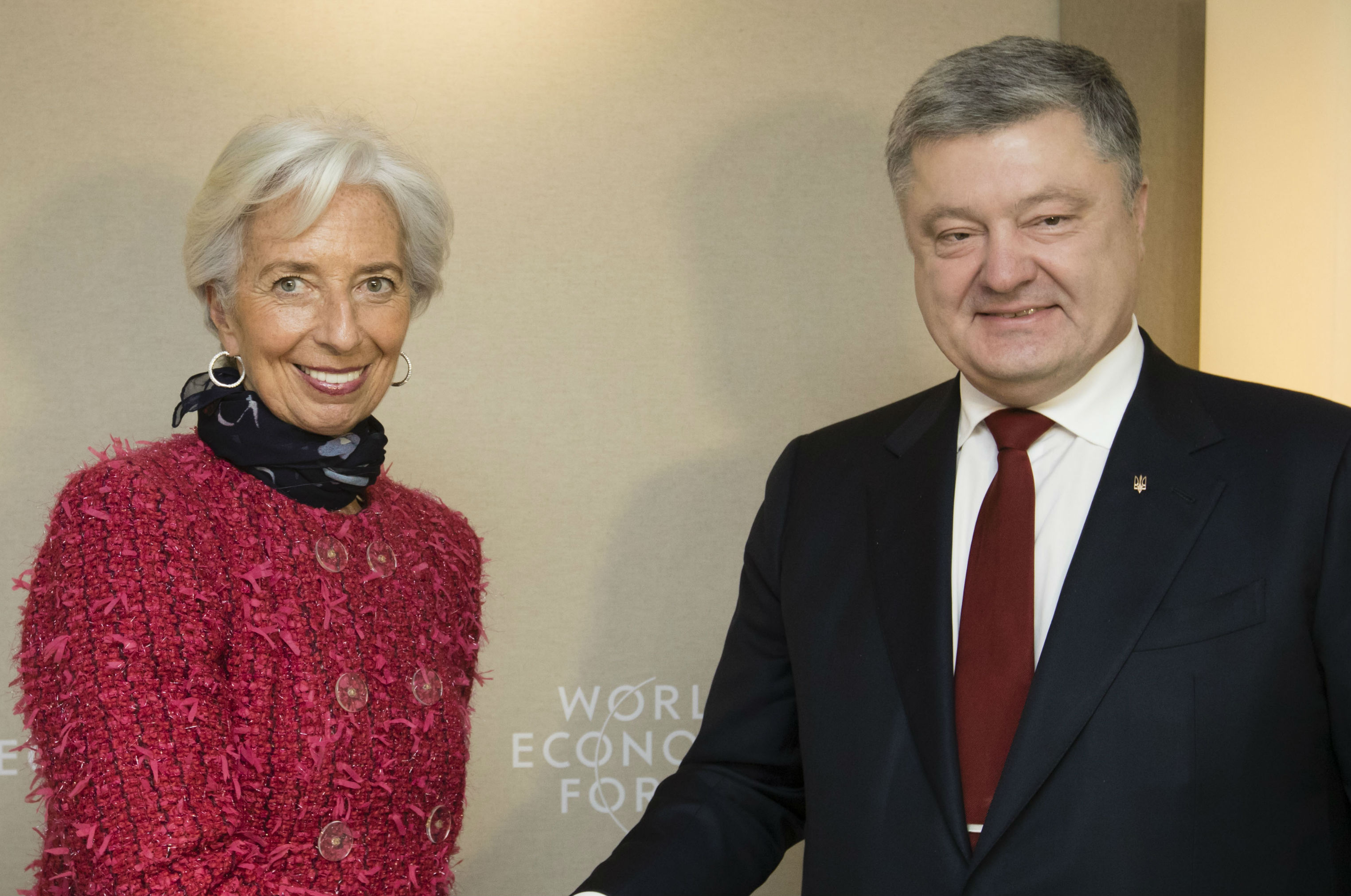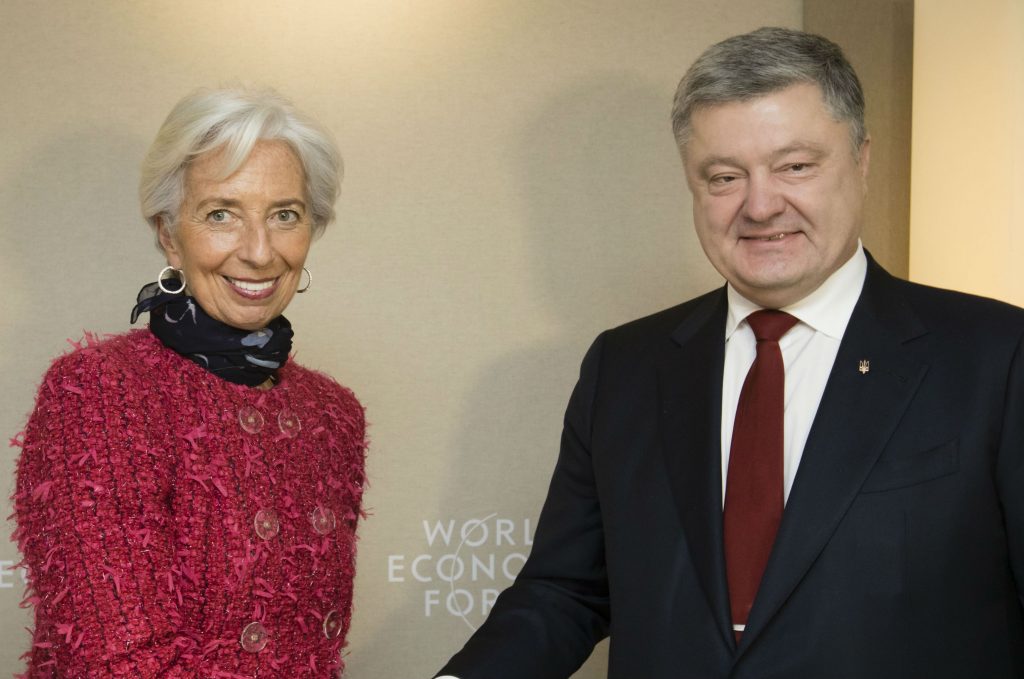 Many were insulted by a letter from the International Monetary Fund to Ukraine’s presidential administration critical of the president’s bill on the High Anticorruption Court. Ukrainian VIPs proved to be touchy. Considering how they take offense at critical newspaper articles, imagine what they think when clerks, whom they find inferior, start writing to them directly. This insult brought forth two claims. First, corruption is not a problem in the poorest and most corrupt country in Europe. Second, we don’t even need the IMF. Those who seriously advance the first claim should see a shrink. The second claim, strenuously exploited by those close to power and the opposition, is much older and more menacing.
Many were insulted by a letter from the International Monetary Fund to Ukraine’s presidential administration critical of the president’s bill on the High Anticorruption Court. Ukrainian VIPs proved to be touchy. Considering how they take offense at critical newspaper articles, imagine what they think when clerks, whom they find inferior, start writing to them directly. This insult brought forth two claims. First, corruption is not a problem in the poorest and most corrupt country in Europe. Second, we don’t even need the IMF. Those who seriously advance the first claim should see a shrink. The second claim, strenuously exploited by those close to power and the opposition, is much older and more menacing.
The point that we should tell the IMF to buzz off rests on the memory of past decades, since this is not the first time we have participated in an IMF program. And each time the IMF helped us rise up, we exited without a word, forgetting about reforms and the program. We can no longer just walk away without consequences. This is very important for those who are offended to understand.
To understand what happens if the IMF withdraws, we first need to realize what it has already saved us from. It is erroneous to see the IMF as a wizard who comes and works miracles. It’s even more of a mistake to believe that the IMF wants to benefit from poor Ukraine. No, this institution is not a wizard; it’s more like a coach for an obese person. It’s intended to rescue and support countries in their greatest hour of need, but it was never meant to solve our systemic problems.
In 2014 and 2015, we survived a harsh economic crisis and recovered thanks only to the IMF macroeconomic stabilization program. It’s noteworthy that for the first time in years, the government implemented the right economic policy. But would it have been so without the IMF? That is a rhetorical question. We indeed went through a devaluation and economic collapse, which was exacerbated by the war. But that was unavoidable. By 2014, the country accumulated an acute number of imbalances, which couldn’t be resolved otherwise. Artificial control of the hryvnia exchange rate, huge budget deficits, and rampant corruption had notable ramifications in 2014 and 2015. The situation would have been much worse if the IMF had not come to our rescue. The IMF picked us up by the scruff of our neck. If you don’t believe me, look at the situation in Venezuela. The IMF didn’t act in that case. There we see corrupt and idiotic officials with free reign, and populist politicians aligned with the drug cartels—all doing the exact opposite of what the IMF says. If you are concerned about 13 percent inflation in Ukraine, how would you like 2,600 percent inflation? What will you say about the situation where there are no more goods left, and people travel to Colombia to get toilet paper? And all this is taking place amidst a senseless war. Therefore, the crisis in Ukraine is not the worst thing. It’s payback for past mistakes, but thanks to the IMF it was not a disaster.
What happens if we have a run-in with the IMF? Not only will we not receive a tranche, but we’ll leave the program. We’ll say that we are poor, but very proud (pride is a strange thing; we are willing to take money, but not do anything). All economic agents will receive a clear signal. I’m referring not only to Western investors, who will shut down their investment programs in Ukraine, but Ukrainian grandmothers too. The world won’t end right away. The economy is growing nonetheless and macroeconomic stability has been attained. No substantial pressure will occur. The inertia of the last couple of years will persist. Everything seems to be all right. But it’s only an illusion.
First, international debt markets (both the market and institutional investors) will pull back from Ukraine straight away. We’ll be left with only the Chinese who are wise and would pay us even less. At first, we will push ourselves to the brink, smiling and waving to the electorate. But investments won’t come. Economic growth will start to unravel. The national reserves will dwindle. Can we make it until the presidential election? Maybe. Will there be enough resources to go on? No, because debts will have to be paid since there won’t be fresh cash. Without the IMF, our economic policy will take us back to a market based on traditional backing of our domestic producers. As a result, there will be a rollback of all reforms, increased issuance of the hryvnia, and populism.
Income growth will no longer be an issue. It will be a matter of how much poorer we will be in the next couple of years. Without the IMF funds, the National Bank reserves will be critically low. The budget deficit cannot be covered. New cash flow could barely be imagined. The exchange rate will be the first to react followed by budget spending cuts. Or, if cuts don’t occur, inflation will reduce real costs on its own. The devaluation of the hryvnia will result in a sharp increase in the cost of imports, including the price of natural gas. Then we would have to either drastically reintroduce high tariffs, although this won’t work because we have populism, or further accumulate budget deficits. This will lead to an even greater devaluation. And all this comes amidst the political turbulence of the new elections, when many rush to stock up on dollars. Now the dynamics of the hryvnia exchange rate is prone to only seasonal factors, when paranoid or conscious liars scare us with the exchange rate of fifty hryvnias to the dollar. But without the IMF program, any rates are possible.
All of this is described in a scenario where the environment remains highly auspicious for Ukraine. There is an abundance of money in the world. The price of steel is high, providing for high export returns. It may seem that this will always be so. In early 2008, many Ukrainian managers shared the same cheer. But it was a trap. The economy is cyclical. Such is the nature of all human society because people make decisions that always form the basis for economic dynamics.
The world economy has long grown steadily, even if it is not so noticeable here in Ukraine. The US economy has been growing too long, for nearly ten years. This is the second longest cycle in modern history. The preceding one continued for ten years and eight months. This is much longer than the average lifespan of the last five economic cycles. During the last 150 years, the average lifespan was six years. What does it mean? It means that cyclicality must be factored in and perpetual economic growth understood as a myth. There is a very high probability of a new slowdown in the world economy within the next eighteen months. It shouldn’t necessarily be as powerful as the 2008 financial crisis, but it would definitely impact commodity-based countries such as Ukraine.
Wherever it hits, be it the United States, China, or Turkey, it always hurts developing countries, the ones President Donald Trump called by a different name. It hurts their currencies and commodity markets. If Ukraine no longer suffers from systemic emigration, it’s still highly susceptible to fluctuating commodity prices. At a time like this, we always needed IMF support, even back when we entered the crisis in a good state. And if tackling a crisis without the IMF will be painful, facing the cyclical crisis without the IMF will bring about economic calamity, which Russia will likely take advantage of. There is no more desired outcome for Putin than the economic collapse of Ukraine.
Thus, the IMF is not only a guarantor of our economic prosperity, but our main ally in the war against Russia.
Sergey Fursa is a specialist in debt securities sales at Dragon Capital. This article was originally published in Russian by Novoe Vremya and has been edited for clarity and translated with permission by Vera Zimmerman.
Image: IMF Managing Director Christine Lagarde meets with President Petro Poroshenko at the World Economic Forum in Davos, Switzerland on January 24. Credit: Presidential Administration of Ukraine
